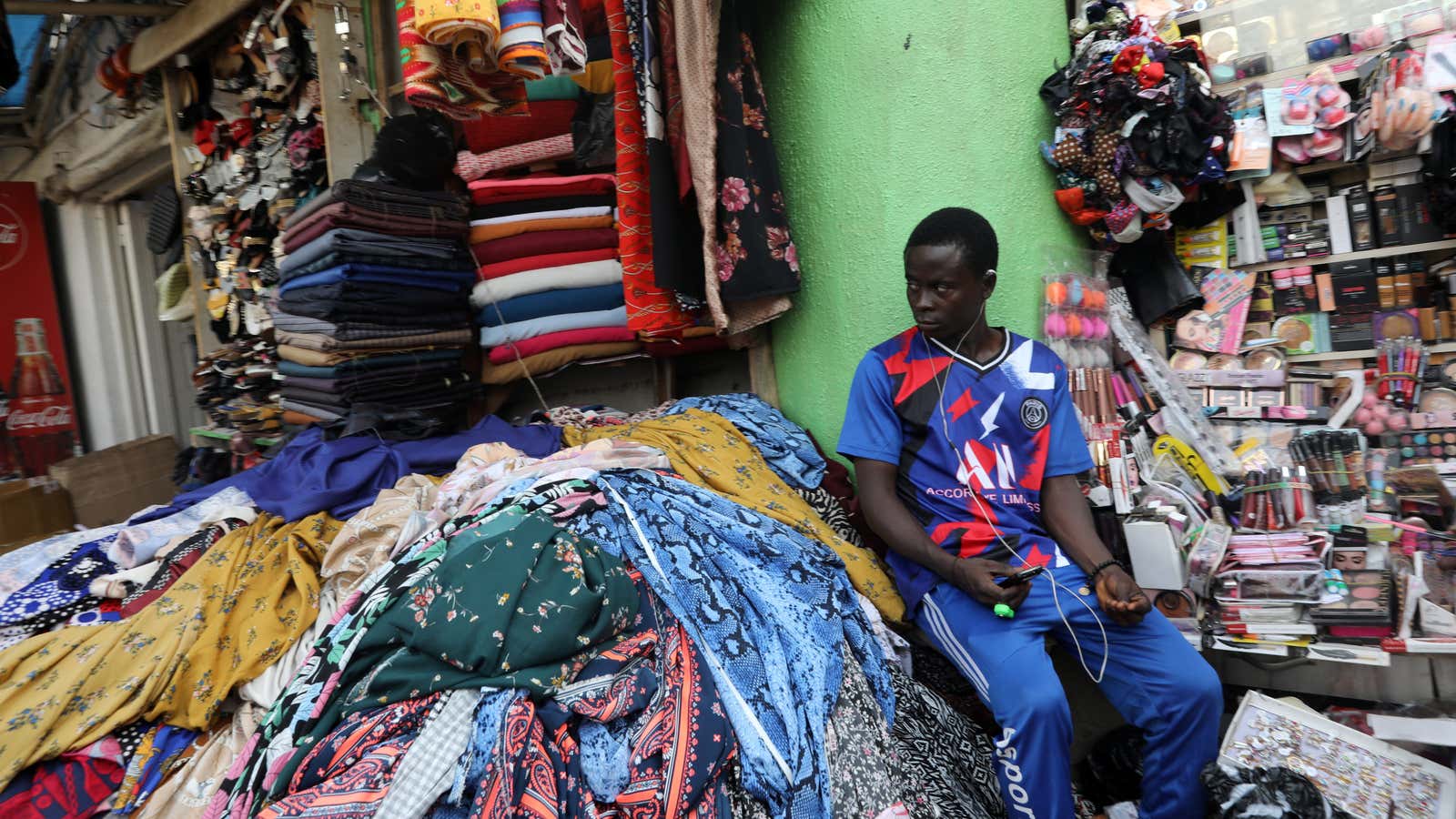On the face of it, Nigeria’s economic recovery is on the right track.
The country’s GDP grew 5% from April to June, according to official data last week (Aug. 26), making it Nigeria’s best quarterly performance since the closing months of 2014. The easing of Covid-19 restrictions, and the reopening of land borders with neighboring Benin after 16 months, contributed to retail and other domestic trade growing by 22.5%, according to Ibukunoluwa Omoyeni, an analyst at Vetiva Capital, a Lagos-based firm.
Transportation and storage also contributed to the bump with nearly 77% year-on-year growth.
However, this year’s second quarter is only impressive because it is being compared to a 6.1% slump in the same period in 2020. Omoyeni says growth of up to 8% aided by better performance in other sectors is needed to restore Nigeria to its pre-pandemic growth path.
One of those sectors is the telecommunications and information services sector, which is a case study for how poorly-timed policies can impact an economy’s ability to recover from shocks.
Nigeria’s telecom growth declined two quarters in a row
Telecom was a growth engine for Nigeria in 2020.
From 9.71% growth in the first quarter of that year, it began expanding by double digits in subsequent quarters, driven by the rise in internet subscribers as a result of increased use of social media during the pandemic, and of virtual collaboration tools like such as Zoom, Microsoft Teams, and Google Meet. The sector’s full-year growth rate came in at 15.9%.
But just as the government reopened land borders in December, setting up a revival in one part of the economy, it put a ban on the sale, registration and activation of new SIM cards in order to audit mobile operators for compliance with registration rules. So people who wanted to get new phone lines were not able to get them.
Following that step, telecom growth declined in the first quarter to 7.69%.
Even though the ban was reversed in April this year, growth for the quarter ending in June slowed further to 5.9%.
In June, the government also shut down Twitter, hurting businesses of all sizes. With that ban, which costs an estimated $6 million a day still in force, reports for subsequent quarters will give a clearer sense of the effect of the move on Nigeria’s telecom sector.
